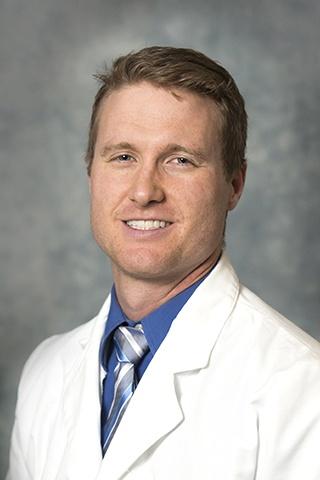Finding a Home at Duke Family Medicine Residency
The residency application and Match process is an exhausting but exciting time that occurs during the fourth year of medical school. It involves applying to programs in which a graduating medical student is interested, hoping they are granted an interview at those programs, and then ranking all these programs in order of preference in hopes that their top-ranked program also listed them at the top of their list. On Match Day, medical students across the country open an envelope at the same time to determine where they will pursue their residency training. I explained this process to my Grandpa no less than five times, and on Match Day he was still confused that my fate was determined by opening an envelope!
This past year, almost 44,000 individuals went through the Match, and I am one of the 3,510 medical graduates who matched into family medicine. Duke had been on my radar since I first met Program Director Viviana Martinez-Bianchi, M.D., at the American Academy of Family Physicians Global Health Workshop five years ago. But as I began researching programs to apply to, certain themes emerged: Where did I want to live geographically? What is the focus of the program? How would I click with the current residents and faculty? Would training at this program help me to develop into the physician I want to become?
As I progressed through my interviews, Duke Family Medicine Residency continued to stand out. Its outpatient focus, robust population health curriculum, and flexibility to personalize the residency experience are core to what make this program unique and were three of the reasons I was thrilled to see Duke Family Medicine Residency when I opened my Match Day envelope.
Outpatient Focus
Most of the top family medicine residencies are considered strong because of their busy residency-run inpatient service. While inpatient training is important, and the ability to see patients of all ages in the hospital or outpatient setting are core to family medicine, I plan to work in an outpatient community setting. According to American Academy of Family Physicians data, as of 2010, out of 99 patients seen by family physicians, only seven are seen in an inpatient setting, while 89 are seen in an office setting. This marks a decrease since the implementation of hospitalist models across the country. When a friend at one nationally-ranked program at which I interviewed told me he has to work Saturday morning clinics after a week of inpatient nights just to reach the minimum number of outpatient care encounters, I knew that program wasn’t for me. At Duke Family Medicine Residency, we still receive robust inpatient training. Through rotations at Duke University Hospital, Duke Regional Hospital, UNC Medical Center, the Durham VA Medical Center, and Granville Medical Center, we train across the health care spectrum from specialized tertiary care to a rural community hospital, but our focus is on practicing outpatient medicine within the scope of our Durham community.
Population Health
Accompanying Duke Family Medicine’s outpatient focus is its emphasis on population and community health. Population health seemed to be a buzzword on the interview trail, but Duke Family Medicine Residency is actually walking the walk. From our dedicated blocks for community health and population management, we learn how to provide care within the context that our patients live, and are learning to utilize our electronic health record to more efficiently manage our panel of patients. Additionally, our Population Health Improvement Teamwork (PHIT) Project allows us the opportunity to partner with a community organization to bring about health care change within Durham. With support from Mina Silberberg, Ph.D., J. Lloyd Michener, M.D., and the Division of Community Health within our department, I know my co-residents and I will graduate with an eye for improving the health of our patients and community in which we practice.
Flexibility to Personalize Training around Interests

Throughout medical school, I have held leadership roles at the local, state and national levels. Some residency programs seemed hesitant to allow time to continue to pursue such leadership roles. Duke Family Medicine embraces residents who take on such leadership roles like Alexa Mieses, M.D., MPH, last year’s resident representative on the AAFP Board of Directors. Additionally, our curriculum has enough flexibility through electives that residents can pursue a wide array of interests like global health, health policy, or unique practice models like Direct Primary Care during their time in residency to graduate prepared for whatever career we hope to practice. Flexibility for these types of opportunities does not mean decreased rigor, however. Our faculty have high standards, and as we are often reminded, first and foremost we are here to become excellent family physicians.
Just a few months into my residency, I am confident Duke Family Medicine Residency is where I belong. Shortly after Match Day, when the whole match process was a little clearer to my Grandpa, he told me he had seen his family doctor recently. When he told his doctor I had matched at Duke Family Medicine Residency, his doctor told him he should be proud because I “couldn’t have done much better than that.” He then told me in his typical humbling way, “I guess you did pretty well!” Yes, I sure did.
Clayton Cooper, M.D., MBA, is a first-year resident with the Duke Family Medicine Residency Program. Email clayton.cooper@duke.edu with questions.
Editor’s note: Duke Family Medicine residents guest blog every month. Blogs represent the opinion of the author, not the Duke Family Medicine Residency Program, the Department of Community and Family Medicine or Duke University.

